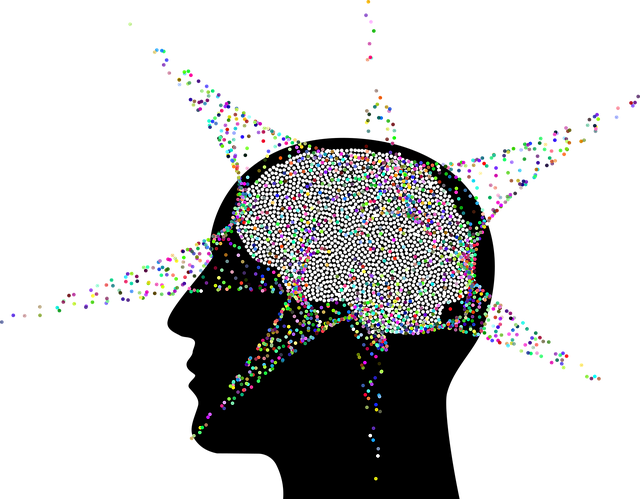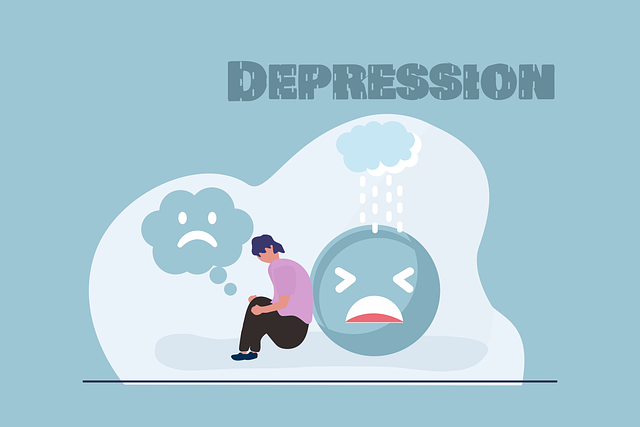Aurora Post-Traumatic Stress Disorder (PTSD) Therapy offers a groundbreaking, non-invasive approach using light and sound technology to target specific brainwave patterns. By creating safe environments for healing, this therapy aids individuals in processing traumatic memories, cultivating compassion, and boosting confidence to manage stress. Combining evidence-based techniques like mindfulness meditation and positive thinking exercises, Aurora PTSD therapy reduces symptoms, improves sleep quality, emotional regulation, and overall mental wellness, empowering individuals to cope with life's challenges. For healthcare providers, it's a game-changer for stress management and preventing burnout.
Stress reduction is a vital aspect of maintaining mental well-being, especially for individuals dealing with post-traumatic stress disorder (PTSD). This article explores innovative approaches to managing PTSD, focusing on Aurora therapy as a promising treatment. We delve into the common symptoms and their impact on daily life, dissecting the mechanics of Aurora therapy and its techniques. Furthermore, we guide readers on integrating this therapy into self-care routines for long-term management, offering a comprehensive understanding of Aurora PTSD therapy.
- Understanding Post-Traumatic Stress Disorder (PTSD) and Aurora Therapy
- Common Symptoms of PTSD and Their Impact on Daily Life
- The Role of Aurora in Targeting and Treating PTSD
- Techniques Used in Aurora PTSD Therapy Sessions
- Integrating Aurora Therapy into Self-Care Routines for Long-Term Management
Understanding Post-Traumatic Stress Disorder (PTSD) and Aurora Therapy

Post-Traumatic Stress Disorder (PTSD) is a complex mental health condition that can occur after experiencing or witnessing a traumatic event. It’s characterized by intrusive memories, avoidance behaviors, negative changes in thoughts and mood, and heightened arousal, all of which can significantly impact daily functioning. Aurora Therapy, also known as Aurora Post-Traumatic Stress Disorder Therapy, is an innovative approach that leverages the body’s natural healing mechanisms to alleviate PTSD symptoms.
This therapy combines traditional evidence-based treatments with light and sound technology to create a safe and controlled environment. By stimulating specific brainwave patterns associated with relaxation and positive thinking, Aurora Therapy aims to help individuals process traumatic memories more effectively. Additionally, it fosters compassion cultivation practices, boosting confidence in one’s ability to manage stress and overcome challenges, thereby enhancing overall well-being and resilience.
Common Symptoms of PTSD and Their Impact on Daily Life

Post-Traumatic Stress Disorder (PTSD) is a mental health condition that can significantly impact an individual’s daily functioning and overall well-being. Common symptoms include intrusive memories, avoidance behaviors, negative changes in thoughts and mood, and heightened arousal or hypervigilance. These symptoms can manifest in various ways, affecting every aspect of a person’s life.
For instance, flashbacks or nightmares about a traumatic event can disrupt sleep patterns, leading to fatigue and difficulty concentrating during the day. Avoidance of situations or places that remind the individual of the trauma may isolate them from social activities and limit their ability to engage in hobbies or work effectively. Moreover, persistent negative emotions like guilt, shame, or anger can strain relationships and contribute to feelings of depression or anxiety. Developing inner strength through Aurora Post-Traumatic Stress Disorder Therapy, along with stress reduction methods and self-esteem improvement techniques, can help individuals manage these symptoms and regain control over their lives.
The Role of Aurora in Targeting and Treating PTSD

The Aurora Post-Traumatic Stress Disorder (PTSD) therapy is a groundbreaking approach that leverages the power of light and color to target and treat PTSD symptoms. By mimicking natural sunlight patterns, Aurora Therapy creates a soothing environment that aids in regulating the brain’s circadian rhythm, known to play a significant role in mental wellness. This innovative method not only helps individuals experience deeper relaxation but also promotes resilience building through exposure to calibrated light stimuli. The therapy is designed to offer crisis intervention guidance, providing a safe and controlled setting for patients to process traumatic memories and reduce the intensity of associated PTSD symptoms.
Aurora Therapy’s non-invasive nature makes it an appealing alternative to traditional talk therapies, particularly for individuals who find verbalizing their experiences challenging. By engaging sensory pathways, this therapy can facilitate emotional release and healing at a profound level. Studies suggest that regular sessions with Aurora Post-Traumatic Stress Disorder Therapy can lead to improved sleep quality, reduced anxiety levels, and enhanced overall mental wellness, contributing significantly to an individual’s ability to navigate life’s challenges more effectively.
Techniques Used in Aurora PTSD Therapy Sessions

Aurora PTSD therapy sessions employ a variety of evidence-based techniques to help individuals process and overcome traumatic experiences. One prominent method is Mindfulness Meditation, which encourages patients to focus on the present moment, thereby reducing the intensity of intrusive thoughts related to past traumas. This practice promotes mental clarity and emotional regulation, key components in managing symptoms associated with Post-Traumatic Stress Disorder (PTSD).
Additionally, therapists facilitate Positive Thinking exercises by guiding clients to identify and challenge negative thought patterns. By replacing these with more adaptive, positive perspectives, individuals can experience a significant boost in their overall mental wellness. The integration of Mental Wellness Coaching Programs development further empowers patients with tools for self-care and resilience-building, fostering long-term recovery and improved quality of life.
Integrating Aurora Therapy into Self-Care Routines for Long-Term Management

Integrating Aurora Post-Traumatic Stress Disorder (PTSD) Therapy into self-care routines offers a promising approach for long-term stress management. This innovative treatment goes beyond traditional coping mechanisms by providing a calming, immersive experience that facilitates emotional healing processes. By simulating natural light and colours, Aurora Therapy creates a soothing atmosphere, helping individuals process traumatic memories and reduce symptoms associated with PTSD.
For healthcare providers struggling with burnout prevention strategies, incorporating Aurora PTSD therapy can be a game-changer. It allows them to develop coping skills and practice self-care in a unique, effective way. This not only enhances their resilience but also enables them to better support patients undergoing emotional healing processes.
Aurora therapy emerges as a promising approach to managing post-traumatic stress disorder (PTSD), offering individuals an effective tool to navigate and overcome their traumatic experiences. By integrating aurora therapy into self-care routines, those affected by PTSD can achieve long-term symptom reduction and enhance their overall well-being. This holistic method, which targets the root causes of distress, empowers folks to regain control of their lives and embrace a brighter future free from the burden of trauma’s aftermath.













